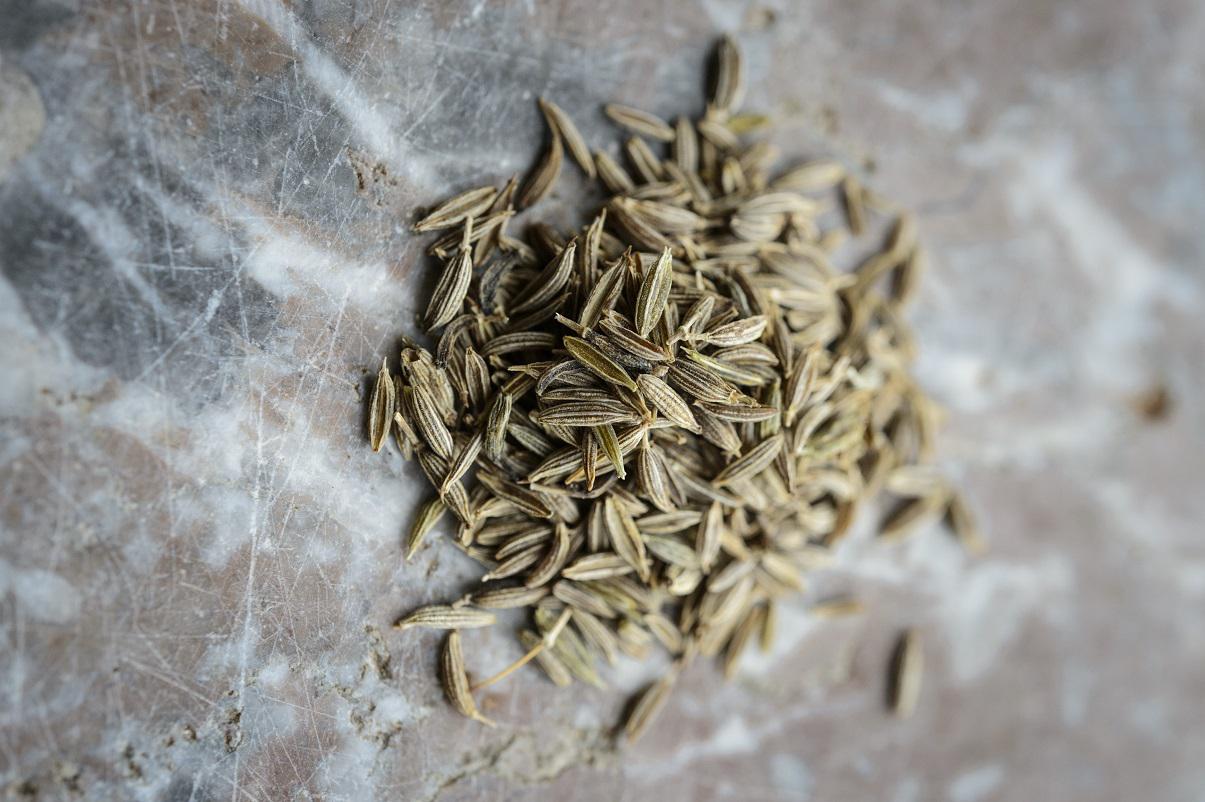28 April 2022
Product news
Organic Cumin sources
Organic Cumin has been extremely hard to come by during the past year, however we have been working hard to secure new, reliable sources.
Cuminum cyminum is a flowering plant in the Apiaceae family, along with Parsley, Caraway and Dill. Native to a broad territory from the Middle East to India, Cuminum cyminum is an annual herb, with a slender stem, 20–30cm tall, showing long, needle-like leaves and small white or pink flowers.
Cumin seeds have been used, both whole and ground, for thousands of years as an aromatic spice. Cuminum cyminum is today cultivated across the Indian subcontinent, northern Africa, Mexico, Chile and China, and is widely adopted in a broad range of spicy recipes – for example curries and chilli – as well as in pickles and some pastries.
Cumin seeds are aromatic (especially when toasted), earthy and spicy, with a slight bitter sweetness that works well in blends and mixes with Cinnamon and Coriander.
The seeds have long been associated with good health, and are rich in antioxidants, are a good source of iron and contain both vitamin C and vitamin A.
As anyone following the situation will be aware, organic Cumin has been extremely difficult to come by over the past year, largely down to challenges with PA (Pyrrolizidine alkaloids) levels. Pyrrolizidine alkaloids are naturally occurring alkaloids based on the structure of pyrrolizidine. Pyrrolizidine alkaloids are produced by plants as a defense mechanism against insect herbivores. They are found frequently in plants in the Boraginaceae, Asteraceae, Orchidaceae and Fabaceae families; less frequently in the Convolvulaceae and Poaceae, and in at least one species in the Lamiaceae. It has been estimated that 3% of the world’s flowering plants contain pyrrolizidine alkaloids. Honey can contain pyrrolizidine alkaloids, as can grains, milk, offal and eggs. Of concern is the health risk associated with the use of medicinal herbs that contain PAs, notably Borage leaf, Comfrey and Coltsfoot in the West, and some Chinese medicinal herbs.
Although Cumin does not contain naturally occurring PAs, challenges can arise when crops becoming cross-contaminated by other nearby plant species - for example weeds containing PAs may end up being mixed into harvested crops if they are not removed at the right time.
In order to resolve the supply challenges, we have worked closely with suppliers at source who have highly skilled agriculture engineers in their teams who know the issues well and work closely with their farmers to prevent issues. Once crops are harvested, they are subject to rigorous testing to ensure they are suitable for organic sale, as well as ensuring that they meet our organoleptic standards.
We are now pleased to confirm that we have identified reliable sources of high quality organic Cumin seed and powder - please get in touch with us to discuss future contract requirements for this product.


